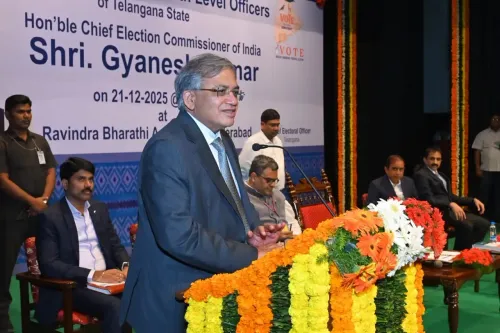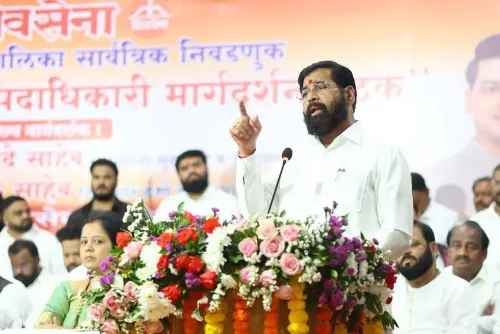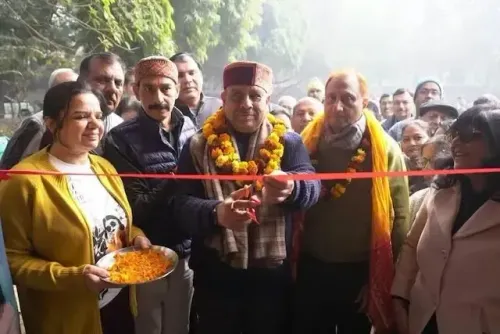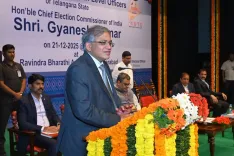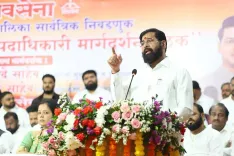Is the Stay on Waqf (Amendment) Act Provisions Just Temporary? Jagdambika Pal Speaks Out
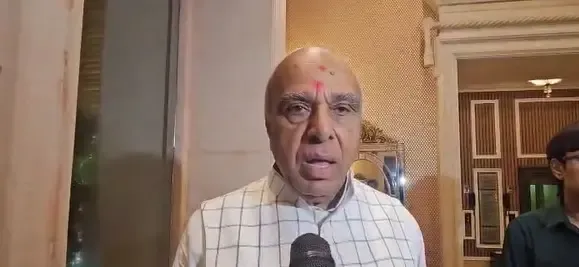
Synopsis
Key Takeaways
- Temporary stay on specific provisions of the Waqf (Amendment) Act.
- Government's consultative approach highlighted.
- Provisions mandating 5 years of Islamic practice suspended.
- Supreme Court's role in adjudicating property rights emphasized.
- Concerns over discrimination against Muslims raised.
Bhubaneswar, Sep 15 (NationPress) In response to the Supreme Court's temporary suspension of specific provisions of the Waqf (Amendment) Act, 2025, BJP MP Jagdambika Pal remarked on Monday that such suspensions are not permanent. Speaking with IANS, Jagdambika Pal stated, “We appreciate the ruling. The nature of petitions presented to the Supreme Court requesting a suspension of the Act is unprecedented in length for any other law.”
He emphasized the government's consultative strategy, saying, “The government proposed establishing a Joint Parliamentary Committee. Over the past six months, we have engaged with stakeholders nationwide. I visited Bhubaneswar and met with various parties. The Supreme Court has effectively provided a ‘stamp of approval’ by only suspending a few provisions. I believe this suspension will be brief.”
Discussing the provision mandating five years of practicing Islam for Waqf establishment, Pal noted, “That suspension will only last until states create the necessary regulations.”
Concurrently, the Supreme Court refused to suspend the entire Waqf (Amendment) Act, 2025, indicating that a statute is presumed constitutional and can only be suspended in the most extraordinary circumstances.
However, a Bench led by Chief Justice of India (CJI) B.R. Gavai and Justice A.G. Masih stayed the provision that requires five years of Islamic practice for Waqf creation until related regulations are established.
Additionally, the CJI Gavai-led Bench has suspended the provision that allows a designated officer to resolve disputes over whether a Waqf property has encroached upon government land, stating that an executive officer cannot make decisions regarding citizens’ property rights, as this would breach the principle of separation of powers.
“Until a tribunal adjudicates, no third-party rights can be established against any parties,” it stated.
In its interim order, the apex court mandated that state Waqf Boards cannot have more than three non-Muslim members, while the Central Waqf Board cannot have more than four non-Muslim members.
The Bench also declined to suspend the requirement for mandatory registration of Waqf properties, noting that this requirement had existed in prior legislation.
A detailed copy of the order has yet to be uploaded on the apex court’s website.
On May 22, the apex court reviewed the perspectives of petitioners and the Centre over three hearings before reserving its decision on granting a suspension of the Waqf (Amendment) Act, 2025—a law strongly defended by the Union government as a means to prevent the misuse of Waqf properties and to ensure greater transparency in their management.
The contentious Act, which took effect on April 5 with presidential assent, has faced challenges from various parties, including All India Majlis-e-Ittehadul Muslimeen (AIMIM) MP Asaduddin Owaisi and Congress MP Mohammad Jawed.
The petitioners argue that the amendment discriminates against Muslims.
This new law modifies the Waqf Act, 1995, aiming to regulate Waqf properties, which are religious endowments or properties dedicated solely for religious or charitable purposes under Islamic law.
On April 17, a Bench led by then CJI Sanjiv Khanna opted not to suspend the Waqf (Amendment) Act, 2025, after the Centre assured the apex court that some provisions would remain unimplemented for the time being.


